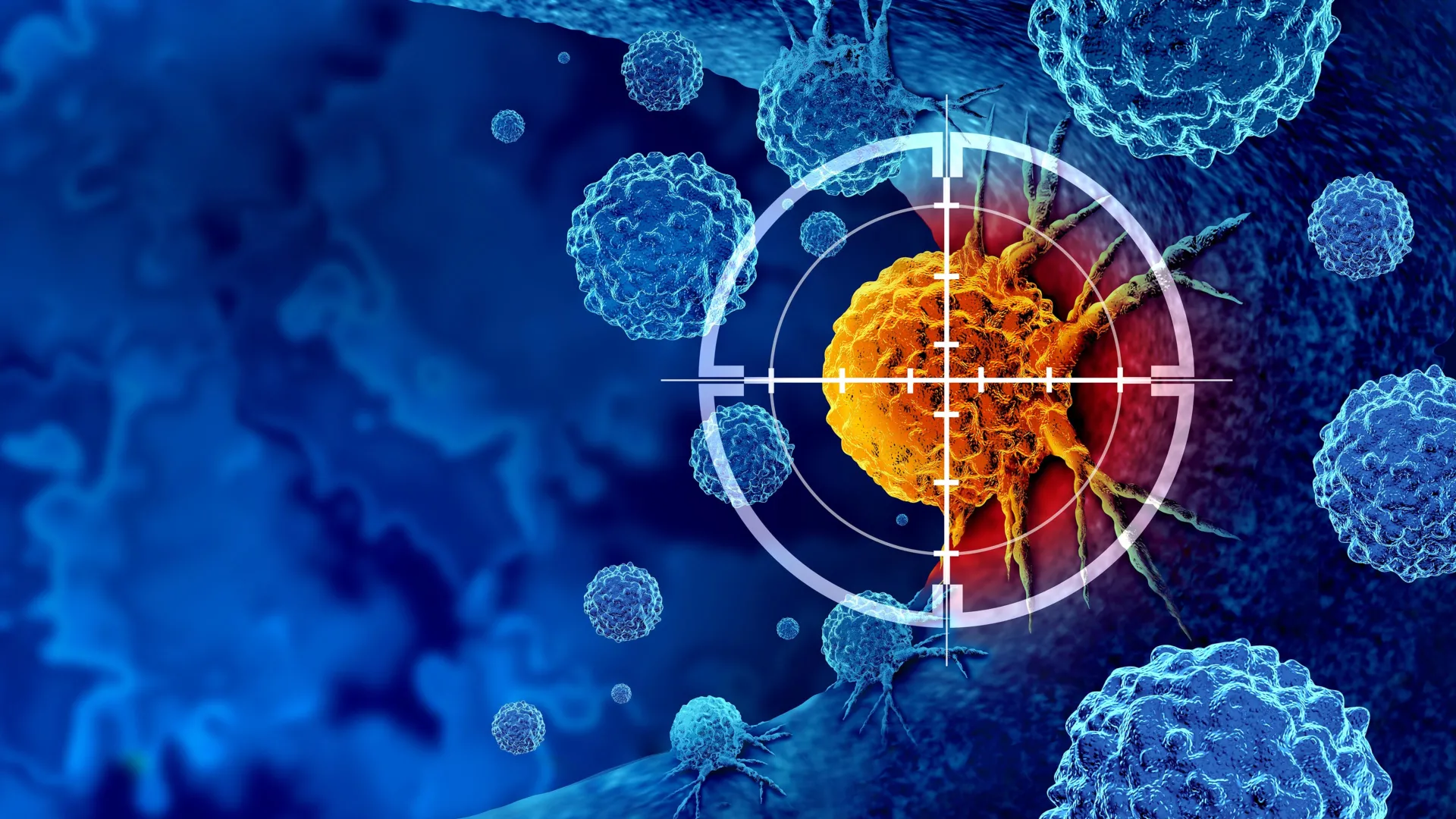Breakthrough cancer therapy stops tumor growth without harming healthy cells
- Date:
- October 19, 2025
- Source:
- The Francis Crick Institute
- Summary:
- Scientists have found a new way to stop cancer growth without damaging healthy cells. Researchers from the Francis Crick Institute and Vividion Therapeutics discovered a compound that blocks the signal telling cancer cells to grow and divide. The treatment worked in mice with lung and breast tumors and didn’t cause harmful side effects seen in earlier drugs. Now entering human trials, this breakthrough could open the door to safer, more precise cancer therapies.
- Share:

Scientists at the Francis Crick Institute and Vividion Therapeutics have discovered chemical compounds that can precisely prevent the cancer-driving gene RAS from connecting with a key pathway responsible for tumor growth.
The potential treatment is now moving into its first human clinical trial. If proven safe and effective, it could become a way to treat a wide range of cancers while minimizing harm to healthy cells.
The RAS gene plays a central role in controlling how cells grow and divide, but mutations in this gene occur in roughly one in five cancers. When mutated, RAS becomes permanently active, continually sending signals that push cells to keep growing and multiplying.
Inside the cell, RAS sits on the membrane and acts as the starting signal in a chain of growth processes. Completely shutting down RAS or the enzymes it controls has proven difficult, because these same pathways are essential for normal cell function. One of the enzymes linked to RAS, called PI3K, also helps regulate blood sugar through insulin. Blocking PI3K entirely can lead to side effects such as hyperglycemia.
In their study, published on October 9 in Science, the team combined chemical screening with biological testing to identify compounds that stop RAS and PI3K from interacting, while leaving normal cell activity intact.
Researchers at Vividion Therapeutics pinpointed a set of small molecules that permanently attach to the surface of PI3K near the spot where RAS would normally bind. Using an assay created by the Crick researchers, they confirmed that these compounds successfully blocked the RAS-PI3K interaction but still allowed PI3K to perform its other roles, including those related to insulin signaling.
The Crick team and their collaborators at Vividion then tested one of the compounds in mice with RAS-mutated lung tumors. The treatment stopped tumor growth, and the researchers found no signs of elevated blood sugar levels.
Next, they tried combining the new compound with one or two additional drugs that target enzymes within the same pathway. Together, the treatments produced stronger and longer-lasting tumor suppression than any of the drugs used alone.
The scientists also tested the compound in mice with tumors carrying mutations in another cancer-linked gene, HER2, which is often overactive in breast cancer and also connects with PI3K. Tumor growth was again halted, even though the effect did not rely on RAS. This finding suggests that the new compound could potentially help stop the growth of a broader range of cancers.
The drug has now entered the first clinical trial in humans to test for safety and side effects in people with both RAS and HER2 mutations. The trial will also assess if the potential treatment is more effective in combination with other drugs targeting RAS.
Julian Downward, Principal Group Leader of the Oncogene Biology Laboratory at the Crick, said: "Given the RAS gene is mutated across a wide range of cancers, we've been exploring how to stop it interacting with cell growth pathways for many years, but side effects have held back the development of treatments.
"Our collaborative effort has overcome this challenge by targeting the PI3K and RAS interaction specifically, leaving PI3K free to bind with its other targets. It's exciting to see these clinical trials starting, highlighting the power of understanding chemistry and fundamental biology to get to something with potential to help people with cancer."
"This discovery is a great example of how new discovery approaches can open up completely novel ways to tackle cancer," said Matt Patricelli, Ph.D., Chief Scientific Officer of Vividion. "By designing molecules that stop RAS and PI3K from connecting, while still allowing healthy cell processes to continue, we've found a way to selectively block a key cancer growth signal. It's incredibly rewarding to see this science now progressing in the clinic, where it has the potential to make a real difference for patients."
Story Source:
Materials provided by The Francis Crick Institute. Note: Content may be edited for style and length.
Journal Reference:
- Joseph E. Klebba, Nilotpal Roy, Steffen M. Bernard, Stephanie Grabow, Melissa A. Hoffman, Hui Miao, Junko Tamiya, Jinwei Wang, Cynthia Berry, Antonio Esparza-Oros, Richard Lin, Yongsheng Liu, Marie Pariollaud, Holly Parker, Igor Mochalkin, Sareena Rana, Aaron N. Snead, Eric J. Walton, Taylor E. Wyrick, Erick Aitchison, Karl Bedke, Jacyln C. Brannon, Joel M. Chick, Kenneth Hee, Benjamin D. Horning, Mohamed Ismail, Kelsey N. Lamb, Wei Lin, Justine Metzger, Martha K. Pastuszka, Jonathan Pollock, John J. Sigler, Mona Tomaschko, Eileen Tran, Chanyu Yue, Todd M. Kinsella, Miriam Molina-Arcas, Brian N. Cook, Gabriel M. Simon, David S. Weinstein, Julian Downward, Matthew P. Patricelli. Covalent inhibitors of the PI3Kα RAS binding domain impair tumor growth driven by RAS and HER2. Science, 2025; DOI: 10.1126/science.adv2684
Cite This Page: